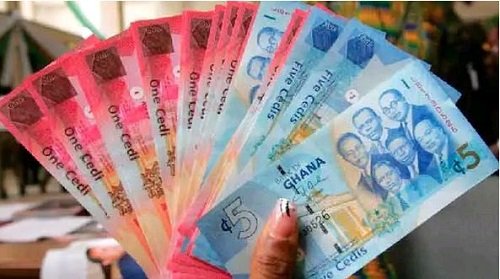Editorial
The Ghana Cedi – A mirage?

Dear Editor,
Having the Ghana cedi with you is like beholding a mirage ahead of you. It may come to you in very bulk quantities but its strength is fleeting when you analyse your daily cost and expenditure.
There are basic needs in life. Everyone has a need. Needs are real and they must be met. Our needs may vary from food, to good clothing, to a comfortable shelter – a cosy place to accommodate yourself, to good means of transportation, to costs of getting good education or higher degrees, to settling telephone, electricity, gas and water bills amongst others.
One must eat good and healthy foods to stay fit and strong. These comprise vegetables and fruits, carbohydrates and cereals, legumes, fish, meat to mention a few. Yet all these come at a cost.
Your means of transportation from one point to another to get to work or to pursue an important transaction would be either your own car or a public transportation system. Just imagine you ply from Tabora to Kaneshie both close points in Accra. Your Uber costs would be GH¢ 30 cedis to Kaneshie and GH¢ 30 cedis back to Tabora, totalling GH¢ 60 cedis.
You realise after getting back to Tabora that you have to quickly go back to Kaneshie because you left an important transaction untouched or that you did a wrong transaction on your first trip.
You would end up spending GH¢ 120 in all covering the entire trip. How much do you have to spend or spare in a day? Yet this is a dire need.
Next, is the cost of raising a family. Most pre-schools take about GH GH¢ 5,000 per term. So , assuming you have three or more children the cost you incur on their education would be tens of thousands of Ghana cedis per term.
The average Ghanaian marries at age 30. Being 30 years at the point of marriage implies you have 30 more years to retirement ( for males ) and 35 more years( for females).This is how the working career of an average Ghanaian professional looks after marriage. At retirement it is likely some of your wards or kids would be studying in the university or would be at the starting point of their working career having just completed the university.
As you picture all these, could luxury be enjoyed at the point of retirement? What other investment opportunities or options would be available so your money today would be much worth better for you tomorrow?
Farming, a private business or a chain of private businesses like owning a shop, a school or a hospital? The issue is that the strength of the cedi may suggest that you think your dreams through with proper planning, prayer and preparation.
Ebenezer K N Baiden-Amissah
P O Box LG 1254
Legon, Accra.
Telephone +233245310380
Editorial
Build fairer educational system after double-track
Dear Editor,
THE Ghana Education Service (GES) has announced that most Senior High Schools (SHSs) will return to the single-track system by this month.
For many students and parents, this feels like a relief. But before we move on, we must take a moment to reflect.
The double-track system helped thousands of students get into schools. It gave hope to families who couldn’t afford private education. But it also came with challenges.
Some students had shorter terms, others had longer breaks. Teachers were stretched, and learning felt rushed. Many students felt left behind not because they didn’t try, but because the system didn’t give them enough time.
Now that we’re returning to single-track, let’s make sure we don’t repeat the mistakes of the past. We need more classrooms, better planning, and support for teachers.
Education is not just about getting into school. It’s about feeling safe and supported. Let’s build a system that gives every child a real chance.
Beatrice Princess Kpeglah,
Dansoman
Join our WhatsApp Channel now!
https://whatsapp.com/channel/0029VbBElzjInlqHhl1aTU27

Editorial
Let’s embrace environmental conservation
Dear Editor
As it is critical for preserving our surroundings, there is the urgent need for increased awareness and action to protect Ghana’s environment and resources.
Ghana’s forest reserves, vast savannas and scenic coastlines serve as homes and habitats to a wide range of flora and fauna, including several endangered species.
Our vegetation and rich soil deposits provide the nation with food, plants and animal resources, which ensures food availability and accessibility for the population.
However, the country’s environment is facing numerous threats including deforestation, overexploitation, pollution, etc.
The importance of environmental conservation cannot be overstated; our natural resources are the backbone of our economy, playing a vital role in driving the country’s economic growth and development.
It is therefore critical that we take actions to protect them for our future generations.
There is the need for collective action to address environmental challenges and promote sustainable development.
Environmentalists, various organizations and private individuals must come on board to promote environmental conservation, through tree planting exercises, clean-up campaigns, and resource conservation practices.
These efforts, when carried out effectively, would create a long-lasting impact in protecting and conserving the country’s environment.
The Ghanaian government should also implement policies and conduct regular programmes aimed at promoting environmental conservation.
By Theresa Tsetse Dzifa,
Bubiashie






